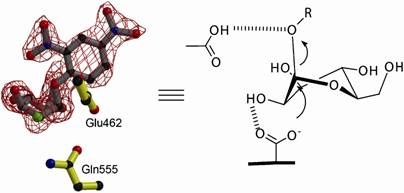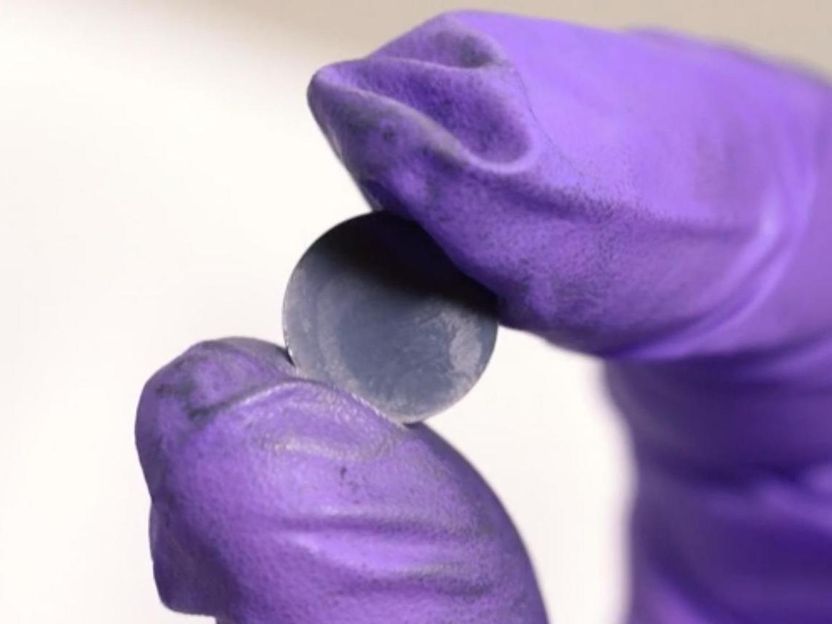Linking up with Huisgen
French scientists show that cross-linking electro-optic polymers enhances stability
Advertisement
Fabrice Odobel, Laurent Fontaine, Vincent Rodriguez and co-workers from Nantes University, University of Maine and the University of Bordeaux respectfully, have successfully used Huisgen chemistry to create a new cross-linked system which enhances the stability of electro-optic polymers. This system not only has the advantages of increasing the thermal alignment stability of the non-linear optical chromophores within the polymer, but also allows for their synthesis on a gram-scale.
Electro-optic systems are able to transfer stored information into a light beam for information processing, such as in telecommunications which are currently made of inorganic materials. Replacing them with organic materials is a promising alternative because ‘they offer superior performances for potentially much lower cost,’ says Odobel. ‘Indeed, the instability of the response of electro-optic organic polymers is currently the main issue which prevents their industrial manufacture,’ he explains.
‘There is a real need for high speed and broad bandwidth data processing systems (for internet, cellular phones and Wifi),’ says Odobel. ‘If we can prepare cheap and highly efficient electro-optic modulators, the applications are obvious for all technologies which require information processing.’
‘The next step will be to apply this new cross-linking strategy to highly efficient electro-optic chromophores,’ says Odobel. ‘Preliminary works indicate that the potential of this new cross-linking strategy in electro-optics is high.’
Original article: Annabelle Scarpaci et. al.; "A new crosslinkable system based on thermal Huisgen reaction to enhance the stability of electro-optic polymers"; Chem. Commun. 2009
Other news from the department science
Most read news
More news from our other portals
See the theme worlds for related content
Topic world Synthesis
Chemical synthesis is at the heart of modern chemistry and enables the targeted production of molecules with specific properties. By combining starting materials in defined reaction conditions, chemists can create a wide range of compounds, from simple molecules to complex active ingredients.

Topic world Synthesis
Chemical synthesis is at the heart of modern chemistry and enables the targeted production of molecules with specific properties. By combining starting materials in defined reaction conditions, chemists can create a wide range of compounds, from simple molecules to complex active ingredients.































































